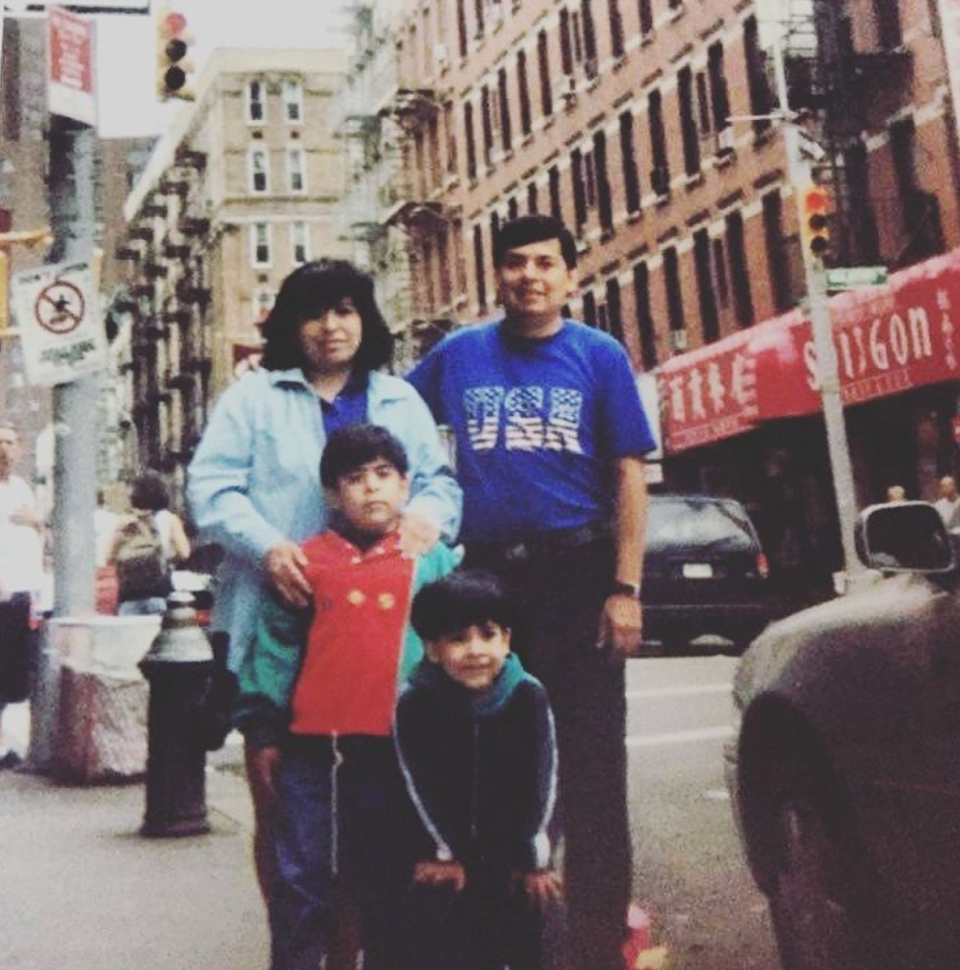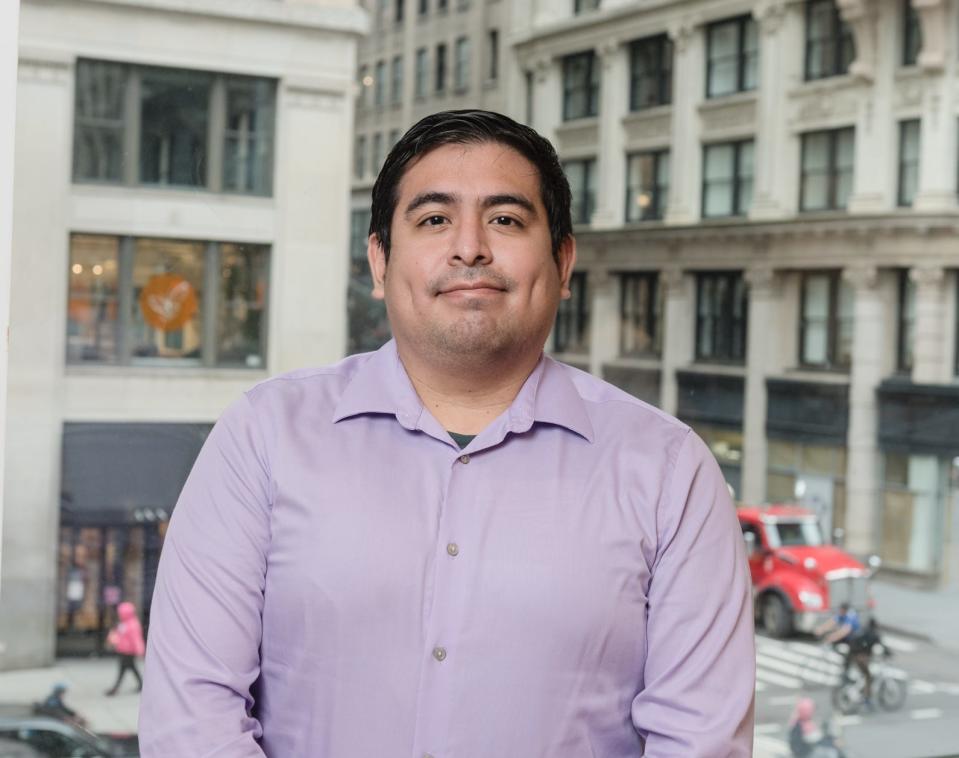Latino STEM leaders had major impact in science. Why aren't we taught about them?
Fifteen years ago when I embarked on my scientific journey, I was an undocumented immigrant from Peru who never dreamed of becoming a scientist. My parents were not scientists or professors, my mom worked in a glass-making factory and my father in a fast-food restaurant. Having had no scientific role models growing up, I always thought that career was reserved for geniuses and didn't think it was a path for me.
Being an undocumented immigrant meant my options to pursue higher education were extremely limited, as I could not afford college tuition and did not qualify for financial aid. The probability of me becoming a scientist was very low. All that changed due to mentors.
Today I am a Latino neuroscientist who became the first in my family to earn a Ph.D. in molecular biophysics and biochemistry from Yale. I've also co-founded Científico Latino, a science organization that improves the pipeline of students of color into higher education in the sciences.
So how did I become a scientist? For this National Hispanic American Heritage Month, celebrated from Sept. 15 through Oct. 15, I want to share my story.

My first role model is my mother
I had the privilege of having inspiring role models throughout my career. Though growing up I might not have had any Hispanic role models in science, technology, engineering and math (STEM), the ones I had were instrumental.
My first role model is and will always be my mother. It has been three decades since our family left Lima to the United States to pursue a better future. I can’t begin to thank her for her sacrifice as a single mother raising two teenagers while working at a factory over 80 hours a week. She taught me the value of education, the importance of pursuing my dreams and that with resilience, you can make it through difficult times.
My interest in science began as a student at Union County College in Cranford, New Jersey. There I met biology professor Tracy Felton, who encouraged my budding interests to conduct an independent literature study on evolution.
Value the teachers: Should you use college rankings to pick a good school? Here's a critical factor they miss.
She also advocated for me when I confided to her about my immigration status. This small but important act made me think that maybe I could become a scientist.
While my college options were limited as an undocumented immigrant back in 2010, the City University of New York welcomed me with open arms. At York College, CUNY, I met professor Anne F. Simon, who changed my life by asking me one question: “Have you thought about doing research?”
Opinion alerts: Get columns from your favorite columnists + expert analysis on top issues, delivered straight to your device through the USA TODAY app. Don't have the app? Download it for free from your app store.
She taught me how to be a scientist through designing experiments, analyzing results and presenting at academic conferences. At this stage of my life, I knew that I wanted to continue a career in science, but I did not know what that path looked like. I had no idea what someone does with a degree in the sciences let alone what a Ph.D. was. The mentorship I received from professor Simon led to a domino effect that resulted in me doing summer research at Princeton, presenting at scientific conferences and learning what a Ph.D. was and how to apply for one.
What learning about Hispanic STEM leaders taught me
My story is one of serendipity. I would not have become a scientist if it weren't for the role models who took the time to invest in me. My experience made me question why didn’t I have any Hispanic STEM role models growing up? Why did I not learn about their scientific contributions in the classrooms.
US semiconductor production ramps up. But without STEM workforce, we'll lose the race.
I often pondered this during graduate school, and I was inspired to learn about the stories of Hispanic scientists after seeing John Leguizamo’s one-man show "Latin History for Morons." This one quote resonated deeply with me when discussing Latin people’s contribution to America:
“But where are our contributions? ... Can you imagine if they were put back into history? Written back into history textbooks? Can you imagine how America would see us? More importantly, can you imagine how we would see ourselves?”
In my search, I learned about the contributions of Hispanic STEM leaders such as Mexican scientist Mario J. Molina, who received the Nobel Prize in Chemistry in 1995, and Ellen Ochoa, the first Latina astronaut and the first Hispanic director of the Johnson Space Center.

Additionally, the scientific journal Cell Press has highlighted "100 inspiring Hispanic/Latinx scientists in America." While these are a few notable examples, there are thousands of Hispanic scientists whose contributions deserve to be known.
How can you help this National Hispanic American Heritage Month?
Teach your students about the stories of Hispanic scientists and their contributions.
Invite and pay Hispanic scientists to speak at your high schools, colleges, universities, institutions, nonprofit organizations and companies.
Invest in Hispanic organizations helping the Hispanic community, such as HISPA, Ciencia Puerto Rico and Científico Latino.
If we want to increase the pool of Hispanic scientists in the United States, representation is critical. How can we envision ourselves in scientific careers if we do not see STEM role models who look like us? It’s time for America to tell our stories and highlight our contributions in the history books.
Robert W. Fernandez is a Junior Simons Fellow at Columbia University and co-founder of Científico Latino. He is also a Paul and Daisy Soros Fellow and Public Voices Fellow of The OpEd Project.
You can read diverse opinions from our Board of Contributors and other writers on the Opinion front page, on Twitter @usatodayopinion and in our daily Opinion newsletter. To respond to a column, submit a comment to letters@usatoday.com.
This article originally appeared on USA TODAY: We need more Hispanic scientists. Recruit Latino students in STEM

